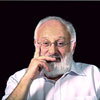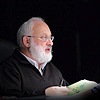Everything That Happens To Us Is Meant To Guide Us To Kabbalah
 A question I received: I have been studying Kabbalah for a few months, since Winter 2009, first with the Learning Center via the Internet, and now going to your morning lesson, reading the texts and being part of the Kabbalah group. My question is about your blog post, “We Are Brought to Perfection Through The Cure Of Absolute Kindness.”
A question I received: I have been studying Kabbalah for a few months, since Winter 2009, first with the Learning Center via the Internet, and now going to your morning lesson, reading the texts and being part of the Kabbalah group. My question is about your blog post, “We Are Brought to Perfection Through The Cure Of Absolute Kindness.”
I was a ballet dancer in a company, and a childhood competitive gymnast. I have had many physical injuries, including foot, knee, and an achilles tendon injury and a serious back injury that finally necessitated three surgeries and a spinal fusion.
For the last three years I was on opioid pain medication. In the last six months I have been able to stop using the very strong medication and now only use over-the counter medication. However, I do use the medication every day, as without it, I still am in pain all the time.
Tell me if I am right or wrong. It seems as if I have had to suffer these incessant blows in order to come to the eventual realization that everything has been done in absolute kindness to bring me to my destiny, and by studying Kabbalah, this will calm me down, be my painkiller and I will no longer have pain of any kind. Meaning I will not need to take any more pain medication.
Should I be trying to stop even the over-the-counter medication? Does this mean I may expect eventual, hopefully soon, release from this pain?
My Answer: Everything that has happened until now took place so that you would come to Kabbalah!
Related Material:
Laitman.com Post: Our Greatest Asset Is Everything We’ve Gone Through
Laitman.com post: Kabbalah Gives Humanity The Opportunity To Live In Total Harmony
Laitman.com Post: We Can Change Our Destiny
Spiritual Search: “How to Relate to Suffering in Life”- Talks
Attaining the Worlds Beyond: 34.”Suffering Sent As Absolute Kindness”
Video: Kabbalah on Suffering (0.59)








